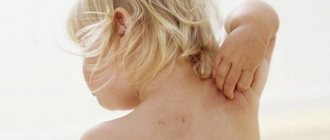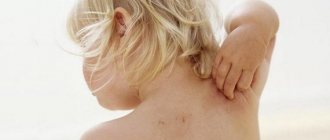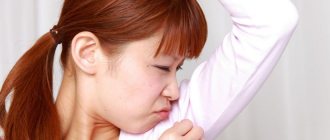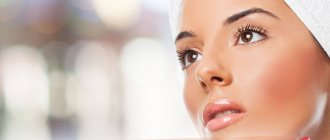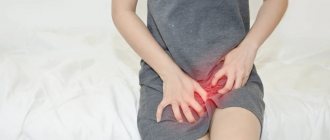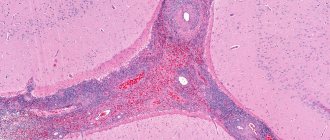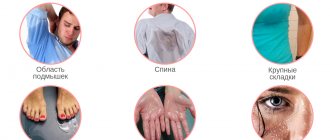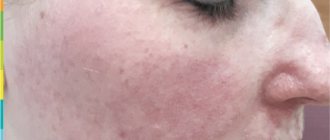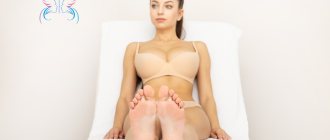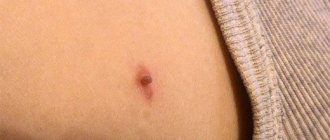Night sweats can have many causes, from medication-related side effects to serious health problems. Episodic sweating at night should not be a cause for concern, however, if it occurs frequently, you should consult an endocrinologist.
Learn about the most common causes and symptoms of night sweats that indicate it's time to see a doctor.
Excessive sweating at night is a problem for many people and is most often not related to the environment. There are times when sweating can be caused by something completely harmless, such as the temperature in the bedroom, bedding, or even food eaten before bed. However, if excessive sweating is observed, the cause will most often be medical. In such cases, it is recommended to consult a doctor in order to find the cause in time and begin treatment.
Types of hyperhidrosis
Hyperhidrosis can be local (localized) or generalized (generalized). When localized, increased sweating manifests itself in certain areas of the body, most often the armpits, palms, knees and elbows, and soles. Sweating may increase in one of these areas or in all of them together. This type of hyperhidrosis is usually caused by increased excitability of the nervous system, in some cases by heredity.
General hyperhidrosis is characterized by excessive sweating over almost the entire surface of the body. It can be physiological, associated with changes in hormonal levels - in adolescence, pregnancy, menopause, and also be a symptom of infectious diseases, functional disorders or diseases of the endocrine and nervous system.
How to improve your night's sleep
An examination and a change in diet are only the first steps towards eliminating excessive sweating. To improve night sleep, it is also important to reduce exposure to factors that provoke an increase in body temperature:
- Before going to bed, the room should be well ventilated.
- It is advisable to sleep in a cool room.
- In summer you should not cover yourself with a warm blanket. A thin sheet is quite enough.
- Before going to bed, it’s good to take a warm (not hot!) bath. It perfectly relaxes the nerves and normalizes the functioning of the endocrine system.
- Under no circumstances should you overeat at night!
Another surefire way to get a good night's sleep is to buy a quality coconut coir mattress. This natural material is perfectly ventilated and prevents the formation of a “greenhouse” effect. It is comfortable to sleep on it at any time of the year.
Buy orthopedic mattresses in Moscow in the Sleep Magic online store.
Deviations from the norm and causes of pathology
In addition to an increase in the amount of sweat even at rest, hyperhidrosis is accompanied by the following symptoms, which can appear individually or in combination:
- pungent odor of sweat (bromidrosis) even with proper hygiene;
- ineffectiveness of hygiene products: deodorants, antiperspirants;
- staining of sweat (chromidrosis) due to intoxication of the body or taking certain medications;
- abrasions and redness in areas of increased sweating.
Hyperhidrosis is divided into primary and secondary, they are caused by different reasons. Primary – characteristic of adolescence and appears during puberty in less than 1% of people.
Secondary hyperhidrosis is a consequence of endocrine, somatic, tumor and other pathologies. It can also accompany normal physiological conditions - menopause, pregnancy.
Each of these types of hyperhidrosis is divided according to its location. Primary is divided into:
- palmar (palmar);
- axillary (axillary);
- foot (plantar);
- hyperhidrosis of the face and scalp (craniofacial);
- perineal (perineal).
Secondary:
- general;
- regional – appears due to damage to peripheral nerves, cerebrovascular disorders;
- focal – Frey's syndrome, eccrine nevi.
Currently, there is no consensus on why primary hyperhidrosis occurs. It is generally accepted that it is based on increased activity of the central division of the sympathetic nervous system.
The main common causes of secondary hyperhidrosis:
- endocrine – diabetes mellitus, increased levels of thyroid hormones;
- lipid metabolism disorder - obesity;
- hormonally active tumors;
- inflammatory and infectious diseases - often tuberculosis, endocarditis;
- psychosomatic pathologies.
In women and men, in addition to the general ones, there are specific causes of heavy sweating. In women, hyperhidrosis is often caused by an increase in the level of sex hormones: estrogen, estradiol, progesterone, prolactin during menstruation, pregnancy, when taking contraceptives, as well as changes in hormonal levels during menopause and the postpartum period.
The cause of increased sweating throughout the body in men is often the level of testosterone. After 40-50 years, the level of this hormone in the body decreases, which disrupts autonomic regulation, as a result of which sweat production increases. Increased sweating can also be caused by nicotine addiction.
Nocturnal hyperhidrosis is classified as a separate category, which is diagnosed in both women and men. There are several reasons for heavy sweating during sleep:
- Sleep apnea syndrome . Mostly typical for men, especially those suffering from constant snoring. 1-2 hours after falling asleep, during deep sleep, heavy sweating begins, and a short-term breath holding suddenly occurs (for a few seconds). After breathing is restored, profuse sweating also occurs.
- Withdrawal syndrome . It is typical for both men and women suffering from alcoholism. With a sudden cessation of alcohol intake, dysfunction of all body systems, malfunctions of various organs, and severe intoxication occur. This condition is characterized by attacks of profuse sweating - very profuse, even to the point of wet underwear and bed linen. Sweat has an unpleasant odor. A similar situation is observed with drug addiction.
- Tuberculosis is often the cause of excessive sweating at night, while with other diseases sweating can increase at any time of the day.
Treatment
Help before diagnosis
To reduce night sweats associated with bad habits, a man should adhere to several rules: avoid heavy meals and alcohol at night, quit smoking if possible, and normalize sleep patterns. To eliminate skin irritation, you need to shower regularly and change bedding more often. If sweating is accompanied by other unpleasant symptoms, you should visit a doctor to rule out or confirm more serious causes of the disorder.
Conservative therapy
Medical tactics depend on the etiological factor. Most often, etiotropic therapy is carried out to eliminate the underlying disease, and a decrease in pathological sweating is observed. If hyperhidrosis is caused by withdrawal, addiction treatment is carried out in specialized centers and involves a combination of medications with psychotherapeutic assistance. To treat the cause of severe sweating at night in men, the following groups of drugs are used:
- Hormonal agents
. Pathogenetic treatment with androgens during male menopause helps eliminate bouts of fever and night sweats, normalizes the functioning of the genitourinary system and increases sexual desire. For patients with diabetes mellitus, a suitable insulin therapy regimen is selected to correct glycemia. - Antibiotics
. The drugs are indicated for bacterial infections of any location for rapid eradication of the pathogen from the body. Antibiotics are selected empirically, as well as taking into account the results of bacteriological tests. Antifungal and antiviral agents may be prescribed. - Anti-inflammatory drugs
. Medicines from the NSAID group quickly normalize body temperature, reduce the amount of inflammatory cytokines and speed up the healing process. In severe situations, NSAIDs are combined with interferons and specific immunoglobulins. - Sedatives
. Herbal and synthetic preparations affect the functioning of the autonomic nervous system, thereby reducing the function of the sweat glands and eliminating the unpleasant manifestations of night sweats. If necessary, “daytime” tranquilizers and antidepressants are added to the treatment regimen.
Diagnosis of hyperhidrosis
A dermatovenerologist is involved in diagnosing and treating excessive sweating. The doctor collects the patient’s medical history and prescribes tests and instrumental studies to exclude internal pathologies. As a rule, the patient needs to do:
- general blood test, urine test;
- blood chemistry;
- ECG;
- Ultrasound of the pancreas.
Additionally, other studies and consultations with doctors of various specialties may be prescribed.
To determine the degree of sweating intensity, a Minor test (iodine-starch test) is done. To study the composition of sweat, a chromatographic study is carried out.
Cardiovascular disease and sweat
They are also characterized by hyperhidrosis caused by activation of the central nervous system. Other symptoms, depending on the disease, include the following:
- for hypertension: increased blood pressure, increased heart rate, tinnitus, headaches, numbness of the hands;
- with coronary heart disease: pain behind the sternum (angina pectoris), inability to take a full breath, nausea and very profuse sweating;
- during myocardial infarction, perspiration covers the entire body, a feeling of fear arises, blood pressure drops, and the person feels very severe pain in the heart area;
- hyperhidrosis with thrombophlebitis occurs in advanced forms of blockage of the vein lumen;
- tachycardia occurs as a reaction to stress or fear, while a person’s adrenaline level increases, the body becomes covered in perspiration, and it becomes difficult to breathe. With tachycardia, there is heat in the head, but the hands remain cold;
- with vegetative-vascular dystonia, sweating is a reaction to stress, even the slightest one.
But with this pathology, the body mobilizes regardless of the reality of the situation. Often a person suffering from VSD experiences bouts of sweating and panic attacks completely unexpectedly: in the subway, in a crowd or in a quiet environment. In this case, hyperhidrosis is a side reaction to imaginary or real stress.
Preventive measures
To prevent hyperhidrosis, it is first necessary to exclude the development of somatic diseases and promptly treat chronic pathologies. To do this, you need to regularly visit a doctor for medical examination or prescribe treatment.
If excessive sweating is not a consequence of other diseases, you should adhere to the following measures:
- exclude spicy, hot dishes, spices, alcohol from the menu;
- stop smoking;
- take a contrast shower, warm baths with herbal decoctions (chamomile, oak bark);
- do not take medications without a doctor’s prescription;
- in clothing, give preference to natural fabrics (cotton, linen);
- shoes should be made of genuine leather or breathable materials with special moisture-absorbing insoles.
Article sources:
- Hyperhidrosis: method of correction. Batyrshina S.V., Khaertdinova L.A. Practical medicine No. 8, 2014. p. 16-23
- Hyperhidrosis and its impact on those living with it. Mary Lenefsky, 1Department of Dermatology, Emory University School of Medicine, Atlanta, GA, 2022.
- Pathophysiology and Treatment of Hyperhidrosis. Tomoko Fujimoto. 1Department of Dermatology, Graduate School of Medical and Dental Sciences, Tokyo Medical and Dental University, Tokyo, Japan. 2016
- Axillary hyperhidrosis: a focused review. Jason E Sammons, Amor Khachemoune. Department of Clinical Medicine, Avalon University School of Medicine, Willemstad, CW, USA. 2b SUNY Downstate and VA Medical Center, Brooklyn, NY, USA. 2017
Let your body relax
A warm shower will be a great end to a busy day. It will wash away not only sweat and street dust, but also fatigue. Set a comfortable temperature - too cold or scalding hot water is an additional stress factor for the skin and causes the sweat glands to work more actively.
Rexona Clinical Protection will help you maintain a feeling of cleanliness longer. Its formula protects against sweat 3 times more reliably than regular antiperspirant*. Thanks to the unique Defense+ technology, it forms an invisible film on the skin, microparticles of which keep the skin dry for up to 96 hours - even in stressful situations, intense physical activity or in the heat.
Cost of eliminating sweating in women
| Name | Price |
| Primary appointment (examination, consultation) with a cosmetologist | 1,500 rub. |
| Treatment for sweaty palms | 400 rubles/unit |
| Treatment of sweaty feet | 400 rubles/unit |
| Treatment for armpit sweating | 400 rubles/unit |
| Treatment of sweating of the head (face) | 400 rubles/unit |
| Treatment of other sweating (perineum, folds under the breasts, etc.) | 400 rubles/unit |
| Treatment of sweating underarms, palms and feet with Botox | 400 rubles/unit |
| Curettage | 55,000 rub. |
Increased sweating during pregnancy
The period of bearing a child is a time of great change for any woman - tastes and habits change, daily routine and nutrition changes, sometimes allergies and intolerance to some familiar foods arise. Cosmetic problems also often appear, which include sweating during pregnancy - already in the early stages, the expectant mother often breaks into a sweat. In the last trimester, such sudden attacks are less common, but the feet begin to sweat more, which causes discomfort and causes an unpleasant odor.
Folk remedies for sweating during sleep
There is no physiological problem that people would not try to solve using traditional means without turning to doctors. Moreover, this trend began a long time ago and is not going to stop. Most of these recipes are based on herbs and their decoctions.
- 2 tablespoons of sage are poured with 200 grams of boiling water, the liquid is infused for an hour and a half. You need to drink this decoction one third of a glass three times a day. Please note that its use is contraindicated for epilepsy. You cannot drink the decoction for more than 3 weeks in a row, as it contains thujone, a rather strong toxin.
- 100-150 grams of oak bark are poured with boiling water, the liquid is boiled for at least 20 minutes and no more than half an hour. The decoction should be used as baths for problem areas of the body, as well as as a filler for full baths.
In addition to these remedies, tea with lemon balm or mint, drunk before bed, helps against night sweats. This drink invigorates and calms at the same time, normalizing the level of adrenaline in the blood. After this tea, you will sleep like a child, and the extra drops of sweat will not bother you until the morning!
